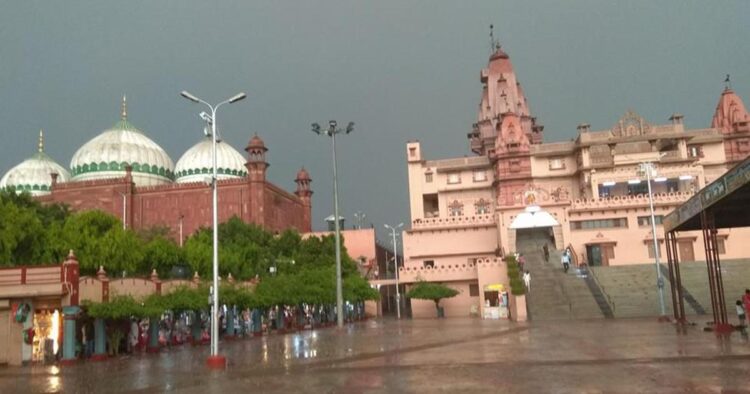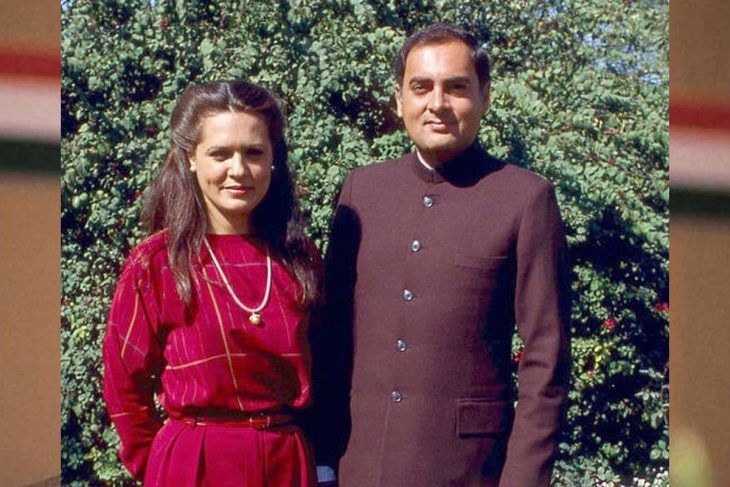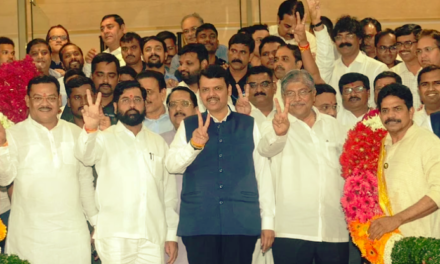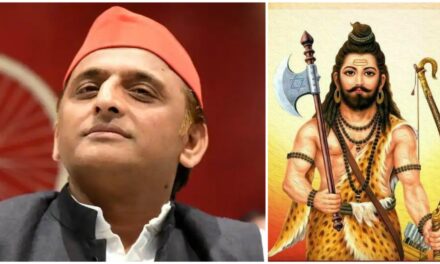After the Supreme Court in November 2020 allowed Hindus to begin constructing a Ram temple on the site on which the Babri Masjid had stood, many feared that this would embolden the calls for similar campaigns against mosques in Kashi and Mathura.
Uttar Pradesh deputy chief minister Keshav Prasad Maurya said on Thursday temples and corridors are not election issues for the Bharatiya Janata Party (BJP).
However reiterating his controversial statement in a tweet wherein he spoke about a grand temple in Mathura, Maurya said while a grand Ram temple is being constructed in Ayodhya and work is underway on the Kashi Vishwanath corridor project in Varanasi, wait is on for the construction of a temple at Krishna Janmabhoomi in Mathura.
To motivate people to vote in the upcoming UP assembly polls next year, an awareness programme was held during the nine-day Ramkatha in Dhumanganj area of Prayagraj that concluded on Tuesday.
On the last day of Ramkatha, devotees turned up in large numbers and took oath to use their voting rights during the 2022 UP assembly polls.
The Ramakatha was organised at Har Har Mahadeo Shiv Mandir where Katha vachak from Vrindavan Shri Ankit Krishna Ji Maharaj is narrating Katha.
The supposed temple site, a subject of multiple lawsuits, is located inside an Aurangzeb-era mosque in Mathura and shares its premises with a prominent temple.
Maurya’s repeated statements on the issue that came despite prohibitory orders being in place in the temple town is likely to have been made in view of the upcoming Assembly election in the state.
On November 28, the Mathura district administration imposed prohibitory orders under CrPC Section 144 following an announcement by the Akhil Bharat Hindu Mahasabha to install a Krishna idol at the deity’s “actual birthplace”, which it claims is inside the mosque.
“Nobody will be allowed to disturb the peace and tranquility in Mathura,” district magistrate Navneet Singh Chahal had said then.
During august 2020 a civil suit was filed in a Mathura court seeking to reclaim a site that was described as the birthplace of Krishna, an incarnation of the god Vishnu. The plaint alleges that the Mughal emperor Aurangazeb destroyed part of the temple that marked the Krishna janmasthan. The Idgah mosque now stands there.
It wants the mosque, which stands next to the Krishna Janmasthan temple, to be removed.
The suit has been instituted by six devotees led by lawyer Ranjana Agnihotri, who claim to be “friends” of the deity and of his place of birth or janmasthan.
The suit maintains that a compromise reached between the Hindus and Muslims regarding the disputed site in 1968 was not legally valid as it was obtained through false submissions.
The suit is eerily similar to the narrative used by Hindutva supporters to claim the site of the Babri Masjid in Ayodhya. In that case, they alleged that the mosque had been built on the very spot where the god Ram had been born after the Mughals demolished a temple that had stood there.
Even the evidence that is being submitted to the court in the Mathura suit has taken a line similar to the Ayodhya case.









